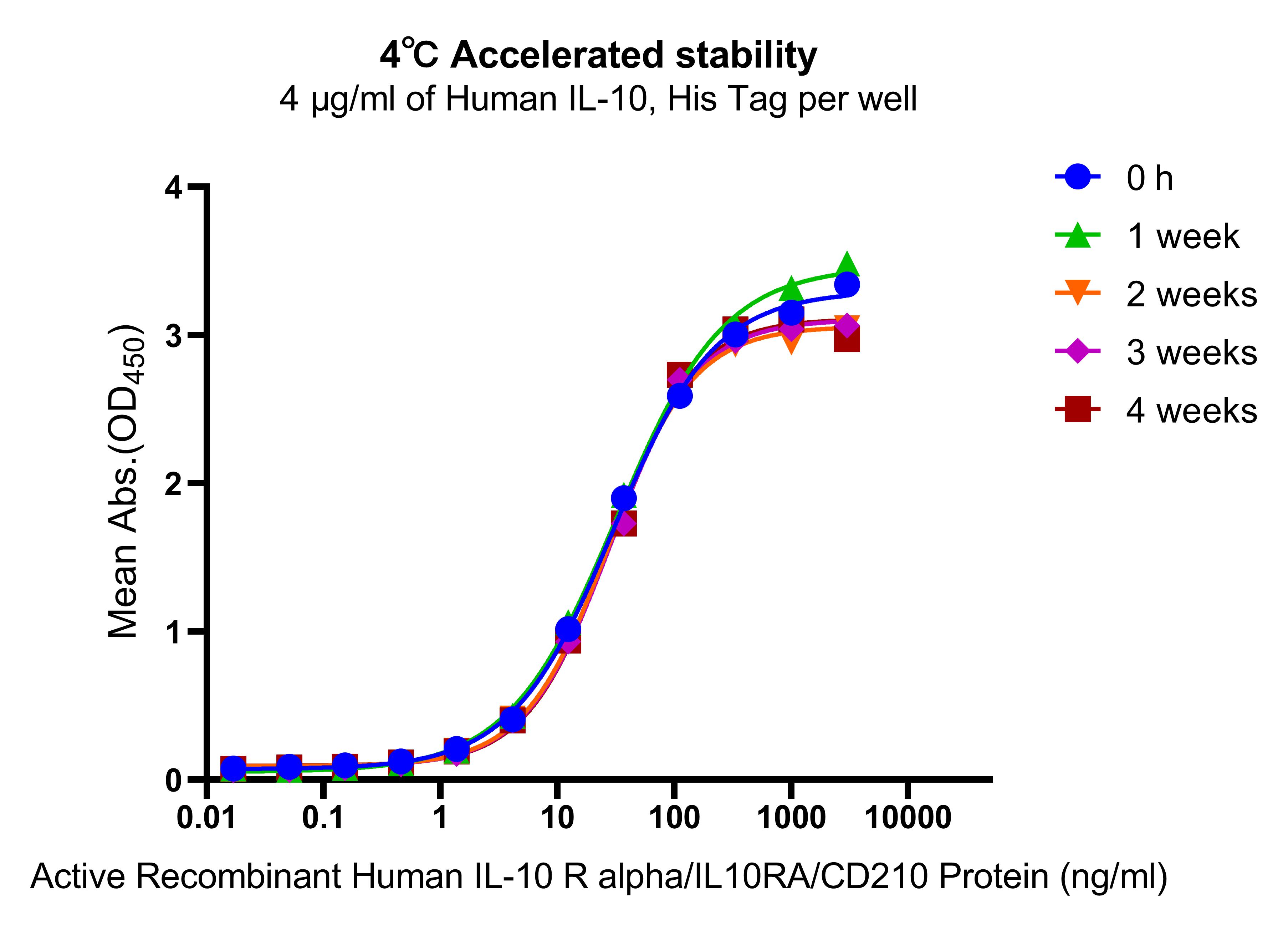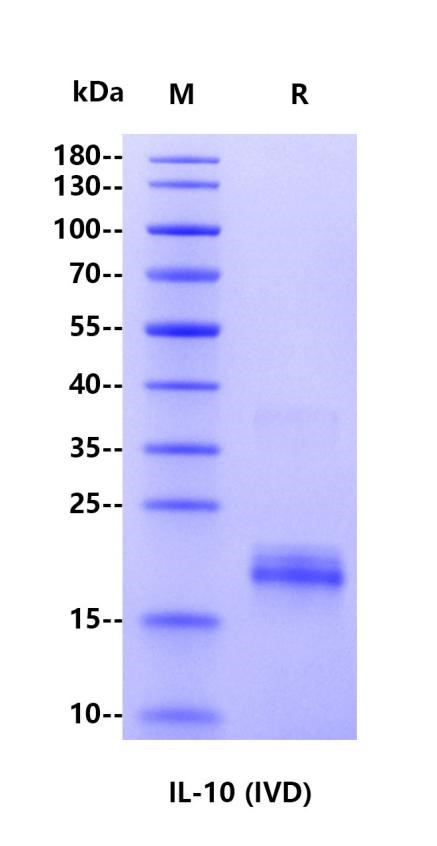SENSCTHFPGNLPNMLRDLRDAFSRVKTFFQMKDQLDNLLLKESLLEDFKGYLGCQALSEMIQFYLEEVMPQAENQDPDIKAHVNSLGENLKTLRLRLRRCHRFLPCENKSKAVEQVKNAFNKLQEKGIYKAMSEFDIFINYIEAYMTMKIRNGGGGSHHHHHHHHHH.
Use within 1 month, 2 to 8 °C under sterile conditions after reconstitution. 12 months from date of receipt, -20 to -80 °C as supplied. Avoid repeated freeze-thaw cycles.
IL-10 (Interlukin-10) is a multicellular and multifunctional cytokine that regulates cell growth and differentiation, participates in inflammatory and immune responses, and is recognized as an inflammatory and immunosuppressive factor. It plays an important role in tumor, infection, organ transplantation, hematopoietic system and cardiovascular system, and is closely related to diseases of blood, digestion, especially cardiovascular system.Overexpression of IL-10 leads to skin leishmaniasis, and IL-10 plays a decisive role in the development of immune paralysis, temporary immune deficiency after trauma, major surgery, burns, shock and high risk bacterial/fungal infections that can be fatal. Macrophage-derived IL-10 is also associated with age-related immune deficiency.Continuous immune activation occurs when IL-10 is relatively or absolutely deficient, which can lead to chronic inflammatory bowel diseases (such as Crohn's disease), psoriasis, rheumatoid arthritis and post-transplant disease, etc.This product is the recombinant human IL-10 protein expressed from human 293 cells (HEK293).
Immobilized Human IL-10, His Tag at 20 μg/mL (50 μL/well) can bind Active Recombinant Human IL-10 R alpha/IL10RA/CD210 Protein with EC50 of 29.35-35.61 ng/mL.

The ELISA based assay shows that Human IL-10, His tag is stable after freezing and thawing 3 times.

The ELISA based assay shows that Human IL-10, His Tag (S0A4001) is stable at 4°C for 4 weeks.
